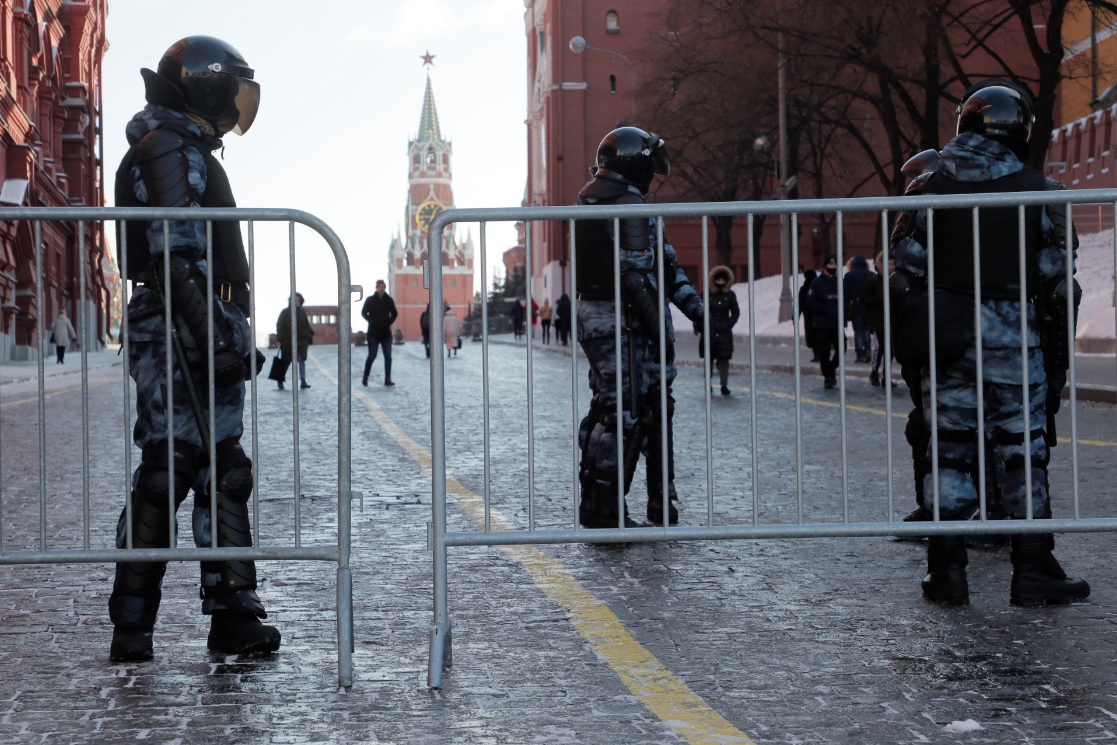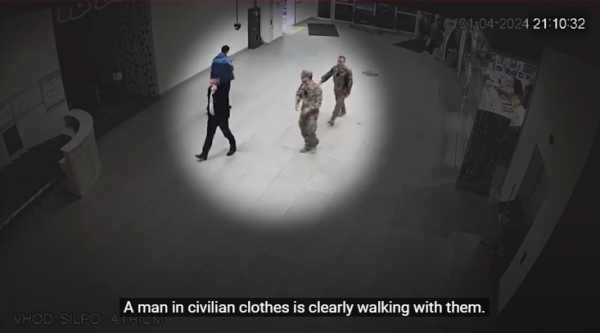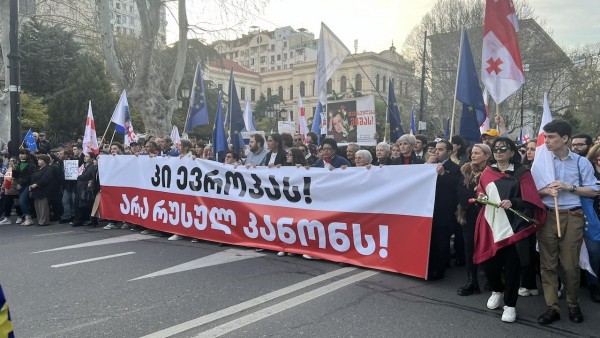On January 31, Russian freelance photographer Ivan Kleymenov was shot with a taser gun and then severely beaten by police as he was detained while covering a pro-Navalny protest in Moscow.
After being taken to the police station, he was then transferred to hospital, where he was diagnosed with multiple hematomas on the head, ankle joint and left forearm. Rather than let him recover in the hospital, the police brought him back to the station and kept him overnight sleeping on the floor, according to Daria Trofimova, Kleymenov’s wife, who spoke to the International Press Institute (IPI).
The next day, Kleymenov was sentenced to 10 days of arrest under Article 20.2 part 6.1 of the Administrative Code for preventing the operation of public transport and movement of pedestrians. However, videos taken at the scene before and during his detention clearly show him standing above street level on the porch of the Rusakov Workers’ Club building.
After his trial, Kleymenov spent another night in an overcrowded police bus waiting to be transferred to the overcrowded Sakharovo holding centre for migrants, which has been converted into a makeshift jail in recent weeks during nationwide protests over the arrest of Navalny, the near-fatally poisoned opposition politician.
In recent weeks, the overcrowded Sakharovo facility has gained infamy for abysmal living conditions: arrestees have to share beds, in the first days deprived of their right to call their relatives and not provided with personal hygiene products. Kleymenov reported that on February 2 he and his cellmates hadn’t received food at all.
Kleymenov, who was released on February 10, was one of many journalists and media workers to be detained at Sakharovo in recent weeks. Joining him behind its bars were Mediazona Chief Editor Sergey Smirnov, Vot Tak TV photojournalist Anastasia Demidas, and RBK producer Sergey Bobrik.
Smirnov was sentenced to 25 days of arrest for “incitement to join unauthorized protests” over an ironic tweet. Later, he managed to appeal the sentence and it was reduced to 15 days. Demidas spent four days in Sakharovo for covering a rally on January 31. Bobrik was detained for being at the site of the demonstration, even though he had his press ID on him.
Attacks on journalists covering protests
The detainees in Sakharovo are among hundreds of other journalists and media workers subjected to arbitrary administrative detentions in the aftermath of nationwide pro-Navalny protests.
While the majority of those detained were released without charge after having their documents checked, some have ended up behind bars for “participation” in unsanctioned rallies, despite carrying their press IDs and being there in a professional capacity.
On the first weekend of protests starting January 23, the Russian Journalists and Media Workers Union (JMWU) and the Russian Union of Journalists (RUJ) documented at least 52 violations against media covering demonstrations in 17 different cities.
The following weekend, monitoring groups recorded at least 120 cases of detention, obstruction and violence against journalists covering protests. Among those detained were journalists from major Russian media including Kommersant, Radio Svoboda, Novaya Gazeta, RBK and Ekho Moskvy.
🇷🇺#Russia: IPI is extremely concerned by video footage – published by police – which reportedly shows the arrest & degrading treatment of Newsbox24 blogger Gennady Shulga at his home in #Vladivostok, after he covered recent protests. @OSCE_RFoM @OSCE @eu_eeas @GovernmentRF https://t.co/SLiFV0lQKG
— IPI – The Global Network for Press Freedom (@globalfreemedia) February 7, 2021
Although most detentions were documented in cities such as Moscow and St. Petersburg, cities in Russia’s regions have also faced a similar heavy-handed response by police. Journalists working for small or regional media also experienced arbitrary detentions, including Svetlana Shishkanova of Batayskoe Vremya, Maria Nuikina of Arsenievskie Vesti, and Vladimir Kornev of Belgorod No. 1.
Journalist and YouTube blogger Dmitry Bairov had his left arm dislocated when he was arrested by plain-clothed law enforcement officers in the eastern Siberian city of Ulan-Ude on January 28. He was later found guilty and sentenced to 25 days of detention for repeatedly violating the law on unsanctioned mass rallies when he covered pro-Navalny demonstrations in Ulan-Ude, according to reports.
Other journalists have faced administrative fines for covering rallies. Vladimir Perekotiy from Dela.ru was fined 150,000 rubles (about 1675 euros) and sentenced to 100 hours of community service for live streaming rallies in Krasnoyarsk on January 23 and January 31. Some have suffered other acts of intimidation. A photographer from St. Petersburg, who preferred to remain anonymous, told IPI that on the rally of February 2 he was threatened by police with a taser gun, despite wearing his bright yellow vest with a PRESS sign.
Putin’s double standards
Russia’s attitude towards media freedom domestically and internationally has long been marked by hypocrisy. When it comes to foreign policy, Putin’s regime demonstrates great concern for press freedom. Russian authorities are highly vocal when it comes to pressure on media in Latvia, a ban on broadcasting of TV channels in Ukraine, or violence towards reporters covering the protests in the United States. In their rhetoric, Russian diplomats actively champion press freedom by appealing towards the rights of the media under international law and referencing to the reports of advocacy organizations.
Yet Russia is one of Europe’s most repressive environments for the press. The media landscape is heavily captured by the state and impunity for attacks on journalists is widespread. The recent protests show that Russian journalists are subject to violence, arbitrary detention and arrest. Despite this, President Putin’s press secretary claimed on February 1 that “nobody interfered with the work of media”.
Moreover, Russian legislation is regularly updated to provide for new ways to harass journalists. IPI has previously expressed concerns over the expanding of the country’s “foreign agents” law to individual journalists. On December 28, five journalists were added to this list. They are now required to identify themselves as foreign agents on publications or face stiff fines.
At the end of 2020, the State Duma introduced amendments to the libel law. Since January 10, defamation committed online is now punishable by up to two years in jail. It was previously classified as an administrative offense subjected to fine or community service. Libel containing false accusations of sexual offenses or grave crimes is punishable by up to five years in prison. International recommendations on best practices call for the removal of criminal defamation and libel laws due to the ease with which they can be abused to retaliate against critical speech.



